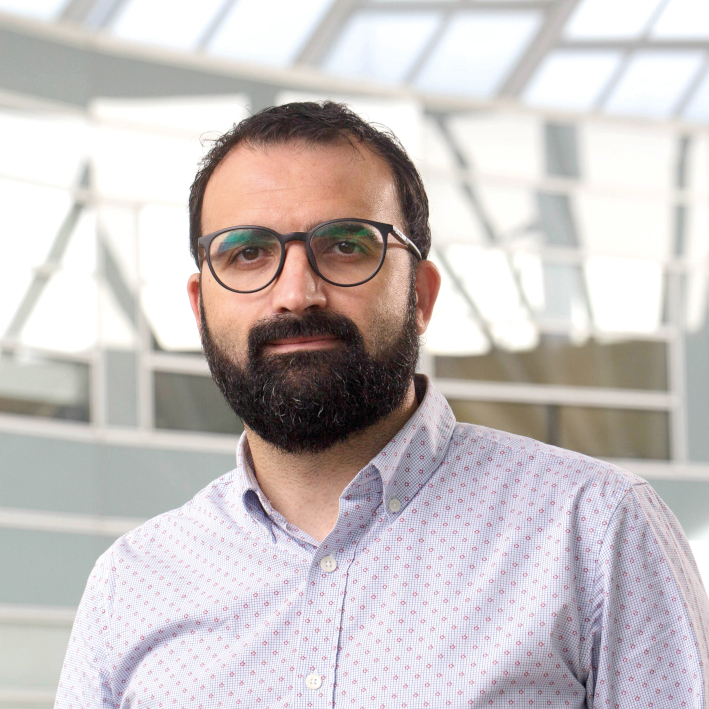The Ikerbasque research professor at CIC biomaGUNE Fernando López-Gallego has received one of the prestigious ERC Proof of Concept grants to develop enzymatic systems (or biocatalytic systems) to achieve oxygen-free oxidation reactions and thus provide a solution for the problem resulting from oxidation reactions using oxygen in the chemical industry.
ERC Proof of Concept projects funded by the European Research Council (ERC) are intended for researchers who currently have ERC projects and who wish to explore the market potential of their research work. These projects aim to establish proof of concept for an idea that was generated in the course of ERC-funded projects. The funding amounting to 150,000 euros is mainly intended for activities designed to convert the results of cutting-edge research into a market product.
This Proof of Concept allocated to professor López-Gallego emerges out of the research developed within the framework of the METACELL project by the CIC biomaGUNE Heterogeneous Catalysis group that he directs. The research by this group builds bridges between chemistry and biology using multidisciplinary tools involving molecular biology, enzymology and materials chemistry. In this respect, the research applies multi-enzymatic systems to synthetic and analytical chemistry by taking advantage of the excellent selectivity of enzymes (biological catalysts) to develop more sustainable and effective chemical processes; the group specializes in the production of multifunctional heterogeneous biocatalysts using cell-free biological systems supported on solid materials.
The new technology proposed by López-Gallego has come about to solve a current problem in the chemical industry, where most oxidation reactions are carried out with oxygen and are complicated, slow processes: “Nowadays oxidation reactions are not as efficient as they should be on an industrial scale due to the low solubility of oxygen in water. We believe that this new technology based on oxygen-free oxidations can improve their efficiency,” explained the professor.
Salts instead of oxygen
In every oxidation reaction there has to be a substance capable of taking up the electrons given off in the process. “Most of us living beings need to breathe oxygen because we need oxidation reactions to take place to transform nutrients into energy. The respiration process basically consists of giving electrons to oxygen. That's the key to most living beings,” he added. However, the researcher focuses on anaerobic organisms, “capable of living in places where no oxygen is present, such as on the seabed. These microorganisms use inorganic compounds (i.e. metals) as the ultimate electron acceptors of cellular respiration and are thus able to carry out their oxidative catabolism and obtain the energy necessary for their survival and reproduction.”
Inspired by oxidations of this type, “we saw that this could be done in the laboratory without these microorganisms; there were some enzymes that could carry out oxidation reactions by using metal complexes instead of oxygen”, he said. “There are highly water-soluble metal salts that can be used as the electron sinks needed by the enzymes to perform these oxidations.”
The research team has demonstrated that this new technology works. Now, “we want to see if it can really compete with today's industrial oxidations in which oxygen-fueled reactors are predominantly used. At the end of the day, it's a question of efficiency,” he said. The Ikerbasque research professor stressed the importance of “making chemistry cleaner and more efficient in order to move towards a much more sustainable model”, like, for example, in the aroma industry and in certain processes in pharmaceutical chemistry, such as the synthesis of statins (which help to reduce the amount of cholesterol and other fats in the blood), where an oxidation process is carried out. “We want to see whether our oxygen-free oxidation systems are as competitive as or more competitive than those currently in use,” and the ERC-Proof of Concept grant means having the funding available to give this technology a boost.

